bright side is fake channel
Why Teaching Kids to Respect Their Elders May Be a Dangerous Thing
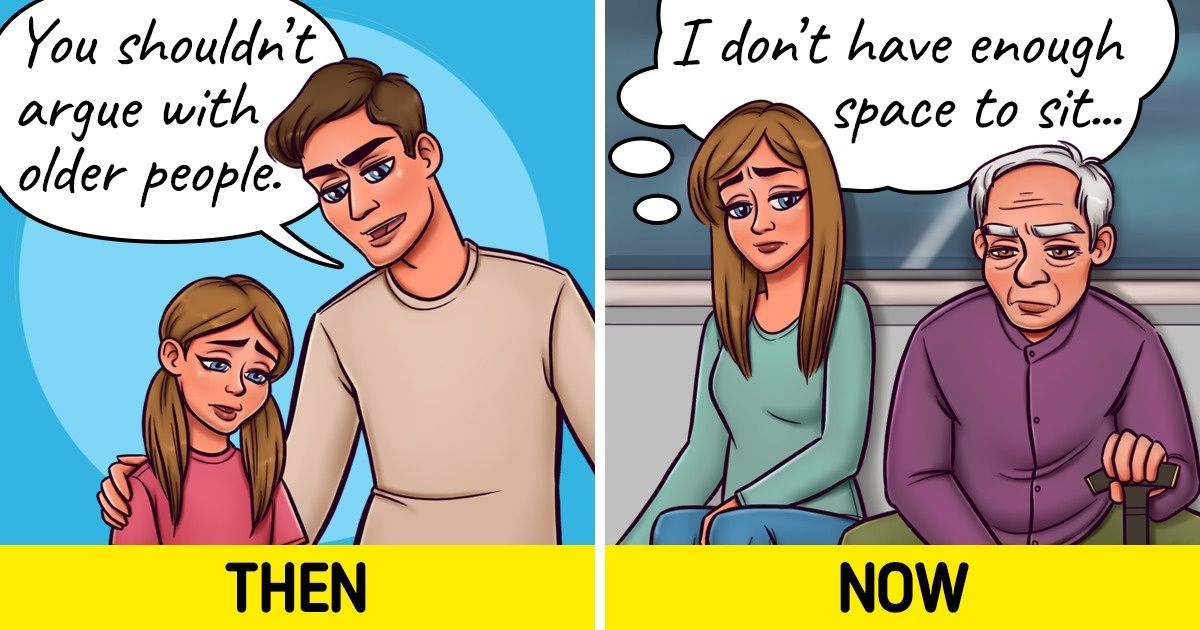
The “respect your elders” concept comes from a time when the most successful life experiences of older generations were to be obeyed by younger people. Since the dawn of time, parents have repeated this phrase to get their children to behave. In some countries, such respect for the elderly is dictated by law.
Here at Bright Side, we performed our own small investigation of the possible pitfalls that are hidden behind this simple phrase, and we’d love to share our unexpected revelations with you.
The notion encourages the imitation of respect.
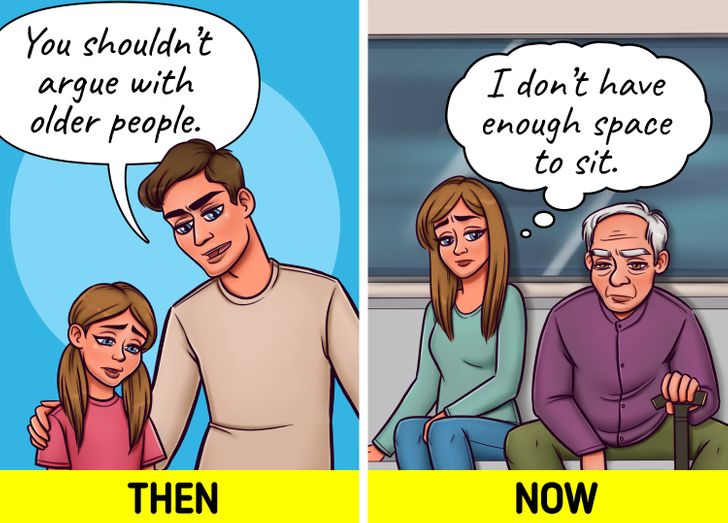
To teach your child to treat others with dignity, you must also treat them the same way, psychologists say. When parents insist that their kids should automatically respect them, without showing a proper example, this may lead to the kid being intimidated. They will act respectfully because they don’t doubt their parents’ opinion: “If mom said so, this is true.” Later, when they grow up, they won’t be able to analyze the behavior of other people or decide whether they deserve their personal respect or not.
It causes children to ignore danger.
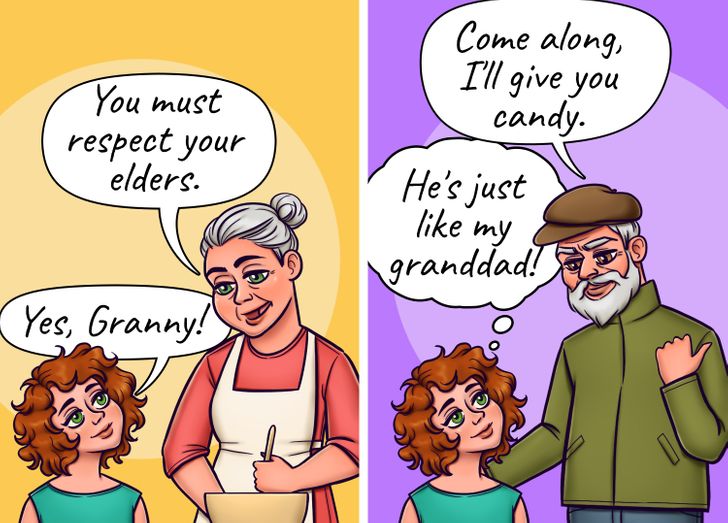
The belief that you must “respect your elders” may cause children to ignore the “don’t talk to strangers” rule. The age gap between us and our elders is still present today, so we enter into adulthood with these learned behaviors. As adults, we also feel less inclined to question those older than us when it really matters. It’s our right, and it’s important for everyone to question what anyone tells us, even if they are older than we are.
It forces younger generations to follow old-school behaviors.
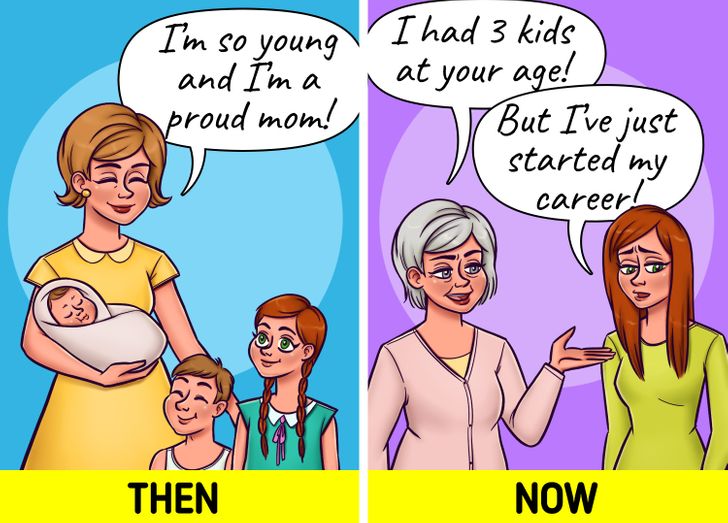
Though there is a connection between age and experience that comes with learning and growing from one’s mistakes, this knowledge is situational. One’s life lessons shape the advice they share with others. Lessons and advice show that our elders want to motivate youth to grow. Judgments, however, are generally aimed at shaming the young and may force earlier generations to stick to dated behavior.
It may give them false priorities.
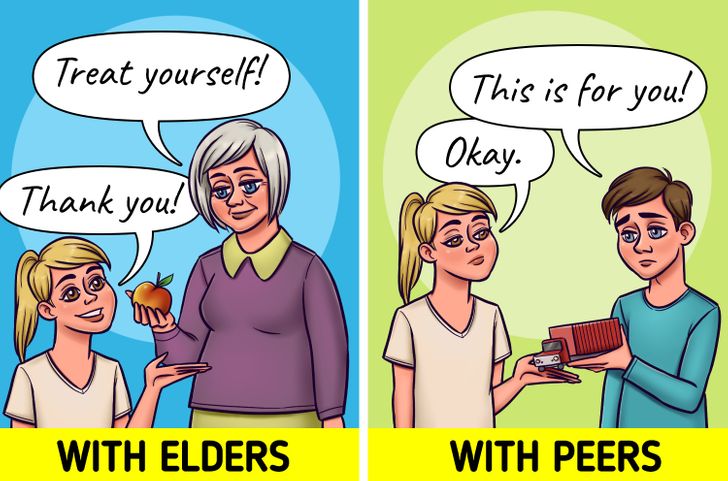
All people deserve love and to be treated with dignity. We may just want to teach children who deserves respect and who doesn’t. Psychologists advise looking from the bottom of the ladder, not from the top, to understand who should get your respect. A person who helps us or makes our life better should be respected, and it’s not necessarily about age.
Demanding respect diminishes the kid’s dignity.
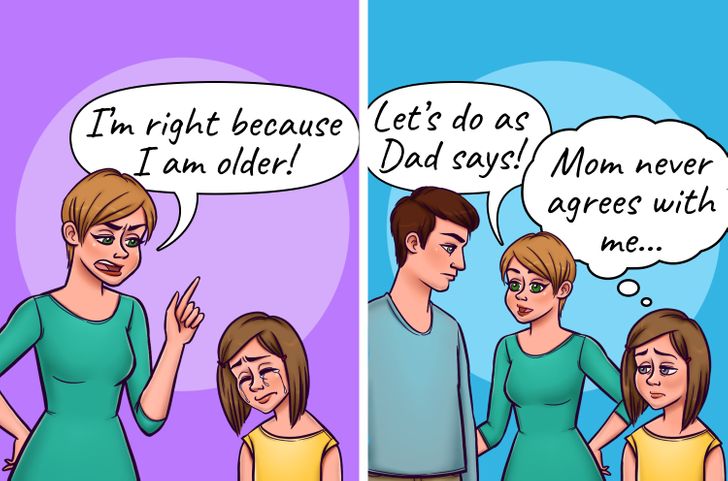
If we demand respect from kids by default, it means we want to be superior over them and diminish their own value. One mom, in her blog, expressed the idea that she would never demand respect by default and allow herself this superior tone with her husband or a friend, but she tended to demand respect from her kid. She realized that respect is not a hierarchy, and there’s not a single human being that deserves to be respected more than others.
What was the attitude toward respecting elders in your family? How do you teach your kids to respect you and other elders?
Comments
Related Reads
8 Principles of Raising a Girl That Can Help Her Reach All Her Goals, Despite Outdated Stereotypes

17 Unspoken Rules of Etiquette We Should Remember

10+ Celebrities Who Actually Look Nothing Like Their Stage Image

"He’s Very Feminine. Beautiful," Gwyneth Paltrow’s Son, 18, Leaves Fans Stunned in New Pic

A Homeless Woman Receives a Full Makeover and Impresses the Whole World

15+ Photos of Celebrities and Their Kids at the Same Age That Work Better Than Any DNA Test

14 Celebrities That Proved Body Hair Is Nothing to Be Ashamed Of

15+ Parents Who Couldn’t Help Their Sense of Humor and Took Things to the Next Level
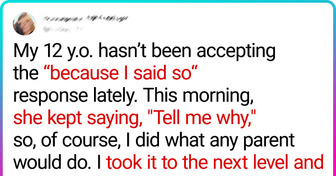
12 Life Moments Where Quiet Kindness Played the Main Role

10 Christmas Gifts That Missed the Mark So Badly They Became Legendary

I Refuse to Be My Mom’s Retirement Plan After She Chose to Stay Home Her Whole Life

12 Real-Life Job Stories That Escalated Into Wild Plot Twists
